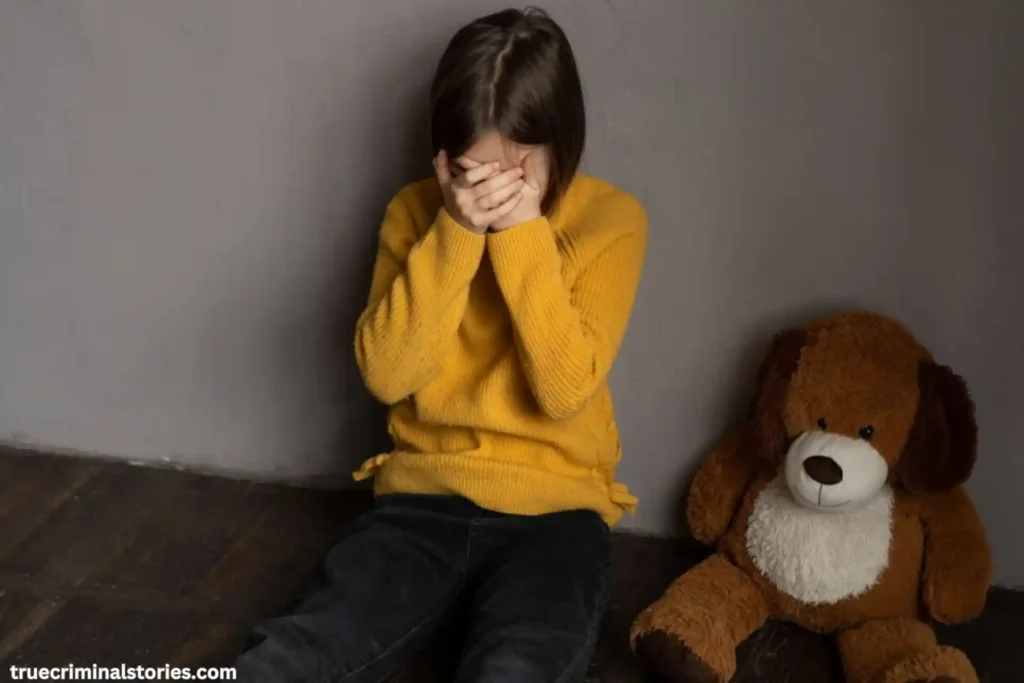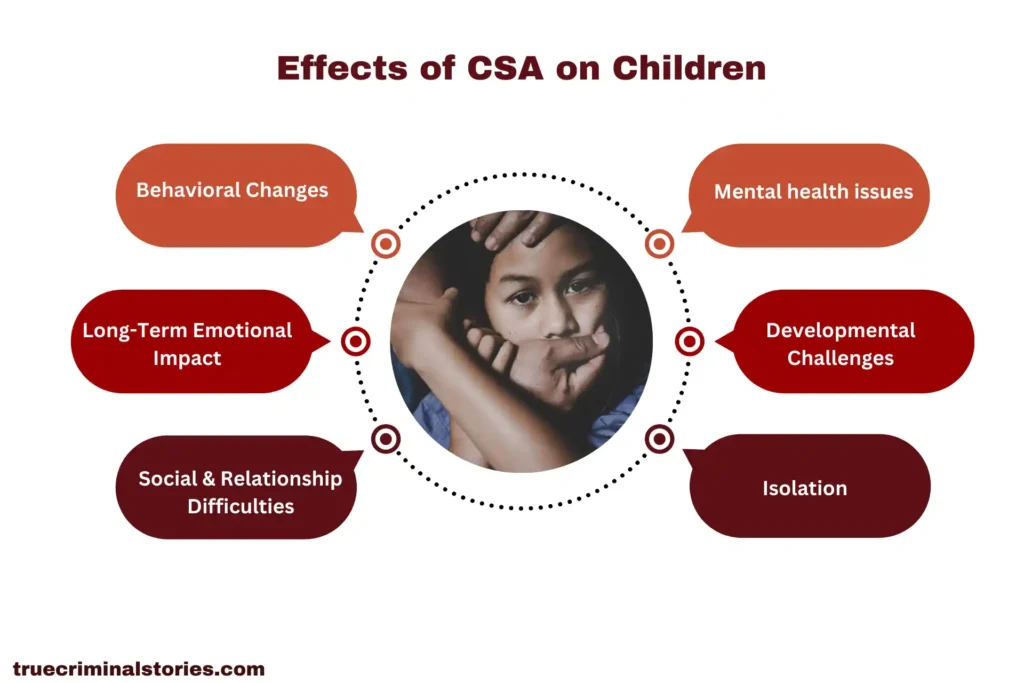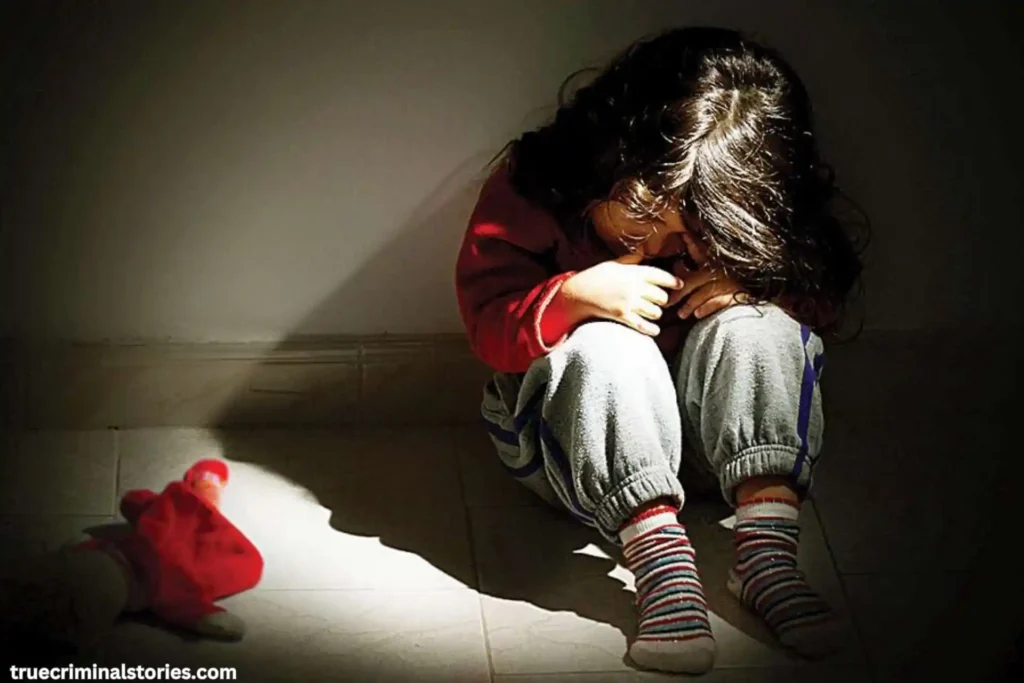Child sexual abuse in families is a hidden crisis with devastating consequences. It shatters trust, disrupts lives, and leaves victims grappling with emotional scars for years. Child sexual abuse (CSA) is an alarming issue that impacts both families and society as a whole. In this article, we’ll explore the causes and effects of child sexual abuse, particularly within families, and shed light on the profound implications for victims and the larger community.
Table of Contents
What Causes a Parent to Sexually Abuse Their Own Child?
While there is no justification for this horrible conduct, recognizing the potential causes can help prevent it. Factors that contribute to family sexual abuse include:
- Psychological Disorders: Perpetrators may have untreated mental health concerns.
- Cycle of Abuse: Many child molesters were once victims of abuse.
- Substance Abuse: Alcohol and drugs affect judgment and reduce inhibition.
- Power Dynamics: Such activities can be motivated by a desire to dominate or control others.

When parents are arrested for sexually abusing a child, it often shocks the community, as families are traditionally seen as safe havens. Sadly, sexual abuse by family members can have lasting effects on victims and relatives alike.
Uncover the chilling case of Mitchelle Blair, a mother whose horrific abuse of her children culminated in a gruesome act that shocked the nation.
Effects of CSA on Children
The psychological and emotional consequences of child sexual abuse are severe and long-lasting. Here’s how it affects victims.
1. Mental health issues
Children who experience molestation within family statistics had more excellent rates of sadness, anxiety, and PTSD. They may also develop trust issues due to betrayal by an adult they trust.
2. Developmental Challenges
Victims frequently suffer from academic and social development. They may demonstrate behavioral issues and seclusion due to guilt or shame.
3. Risk of Further Exploitation
Victims of minor sex crimes are more likely to be revictimized. Without appropriate help, trauma maintains a cycle of vulnerability.

Discover the shocking story of the Menendez brothers and how years of sexual abuse by their parents led to a devastating act of violence.
The Prevelance of Intrafamilial Sexual Abuse
Molestation within family statistics reveals alarming numbers. Studies indicate that up to 30-40% of child sexual abuse cases are committed by family members. This form of abuse is particularly damaging as it breaks the bond of trust essential in familial relationships.

Societal Implications
- Family Disruption: Intrafamilial sexual abuse destroys familial trust, resulting in estrangement and emotional scars.
- Generational Trauma: Abuse in one generation sometimes affects the following generations, sustaining harmful cycles.
- Denial and Misdirection: In certain circumstances, denial results in utterances such as, “No, it’s the children who are wrong,” indicating a dangerous failure to address the issue.
Addressing CSA Abuse
Prevention
- Education: Teach children about body autonomy and boundaries.
- Vigilance: Be alert for indications such as fear of specific people or unexpected behavioral changes.
- Community Awareness: Encourage open discussions about family sexuality and healthy relationships.
Support for Victims
- Counseling: Therapy is vital for healing and reestablishing trust.
- Legal Action: Bringing child molesters to justice helps to protect future victims.
- Safe Spaces: Provide situations in which children feel comfortable disclosing abuse.
You May Also Like:
- Juvenile Sex Crimes- (COCSA) Child On Child Sexual Abuse
- Sexual Battery vs Sexual Assault: Key Differences
- Accusations of Sexual Abuse at Southwestern Advantage
Conclusion
Child sexual abuse within families is a serious problem that demands immediate response. Understanding the causes and addressing the effects of sexual abuse by family members might help survivors reclaim their lives and prevent future incidents. Society can create a safer environment for all children by recognizing the problem and adopting collaborative action.
If you suspect or know about CSA abuse, take urgent action to safeguard the kid and seek professional assistance. Every child deserves to be raised in a safe, supportive environment devoid of exploitation and violence.
FAQs
What are the signs of child sexual abuse?
Signs include sudden behavioral changes, fear of specific individuals, withdrawal, physical injuries, or knowledge of sexual matters inappropriate for their age.
How does sexual abuse affect a child?
It can lead to long-term mental health issues like depression, anxiety, PTSD, difficulties with trust, developmental delays, and behavioral problems.
What is intrafamilial sexual abuse?
Intrafamilial sexual abuse occurs when a family member, such as a parent, sibling, or relative, sexually exploits a child. This form of abuse often goes undetected due to familial loyalty and fear.
What should I do if I suspect a child is being abused?
If you suspect child sexual abuse, report it immediately to child protection services or law enforcement. Ensure the child’s safety and seek professional help for the child and family.
What does “No, it’s the children who are wrong” signify?
This phrase illustrates a dangerous form of denial where abusers or their enablers blame children to avoid accountability. Such attitudes hinder efforts to address and prevent child sexual abuse.
What is CSA assault?
CSA assault, or child sexual abuse, refers to any sexual activity with a minor that involves coercion, manipulation, or force. This type of abuse often has severe psychological and emotional effects on victims and their families.
What happens when parents arrested for sexually abusing child?
When parents are arrested for sexually abusing a child, it often creates shock within the community and fractures familial trust. Legal action is taken to protect the child and ensure justice, while support services help victims recover from the trauma.